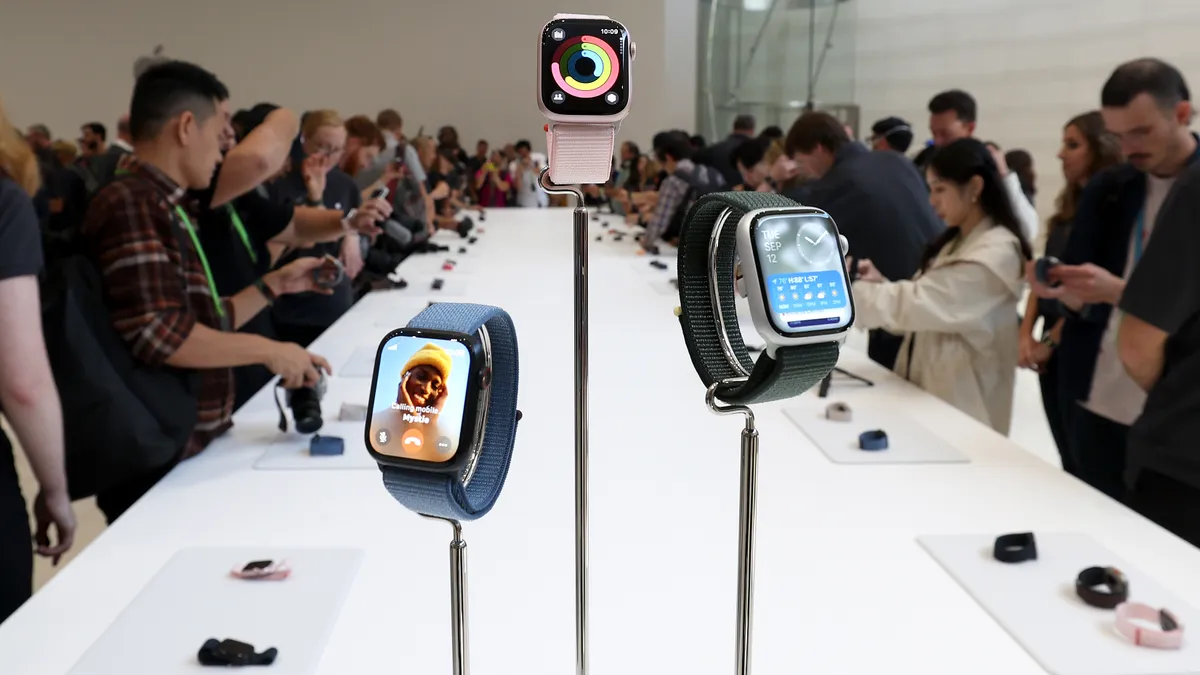Dive Brief:
- The Food and Drug Administration has qualified Apple Watch’s atrial fibrillation (AFib) history feature for use in medical device clinical trials, the agency said Wednesday.
- FDA officials will accept data collected by Apple Watch as a secondary endpoint to help assess AFib burden in studies of cardiac ablation devices.
- The FDA said Apple Watch can address challenges related to patient compliance, potential placebo effects and the technical difficulties of measuring AFib burden without an implantable device.
Dive Insight:
The FDA created the Medical Device Development Tools (MDDT) program to reduce uncertainty in device development. Previously, the agency evaluated tools used to collect data in medical device trials on a case-by-case basis. Through MDDT, the FDA has created a portfolio of qualified tools that sponsors know the agency will accept without needing to reconfirm their suitability for use in a study.
Apple applied to get its AFib history feature qualified as a MDDT in December. It is the first digital health technology qualified under the program. Apple Watch monitors changes in blood flow at the wrist and measures the intervals between heart beats. The history feature analyzes the intervals to estimate the amount of time the wearer spent in AFib over the previous week.
The amount of time a patient spends in AFib, a measure known as atrial fibrillation burden, is potentially an important indicator of the effectiveness of an intervention. However, in 2004 the FDA said evaluating reduction of AFib burden as a primary endpoint is “problematic” because after ablation the result “could be strongly influenced by various, non-therapy-related factors” such as compliance with monitoring.
The FDA restated its concerns about the use of AFib burden as a primary endpoint in the Apple Watch MDDT. Officials said the wearable can help address the challenges “by allowing for passive, opportunistic AFib burden estimation in a wearable form that is already familiar to Apple Watch users.”
Qualifying Apple Watch may reduce the burden on a medical device developer, the FDA said, “by eliminating the need to provide a rationale for its collection methods and cadence ... with respect to AFib burden estimates.” The agency said Apple Watch could reduce the barrier to assessing AFib burden in device trials.
The FDA also highlighted some disadvantages of using the feature. Apple has not provided guidance on what should be considered a clinically significant reduction in AFib burden. Investigators are responsible for defining and justifying the specific study design and endpoints. The FDA said performance may be reduced in patients who have undergone prior ablation and noted the lack of AFib episode timestamps.
Apple’s technology for monitoring heart rhythms is at the center of a dispute with Alivecor. A federal judge dismissed an Alivecor lawsuit in February, but the company said it would appeal the ruling.













